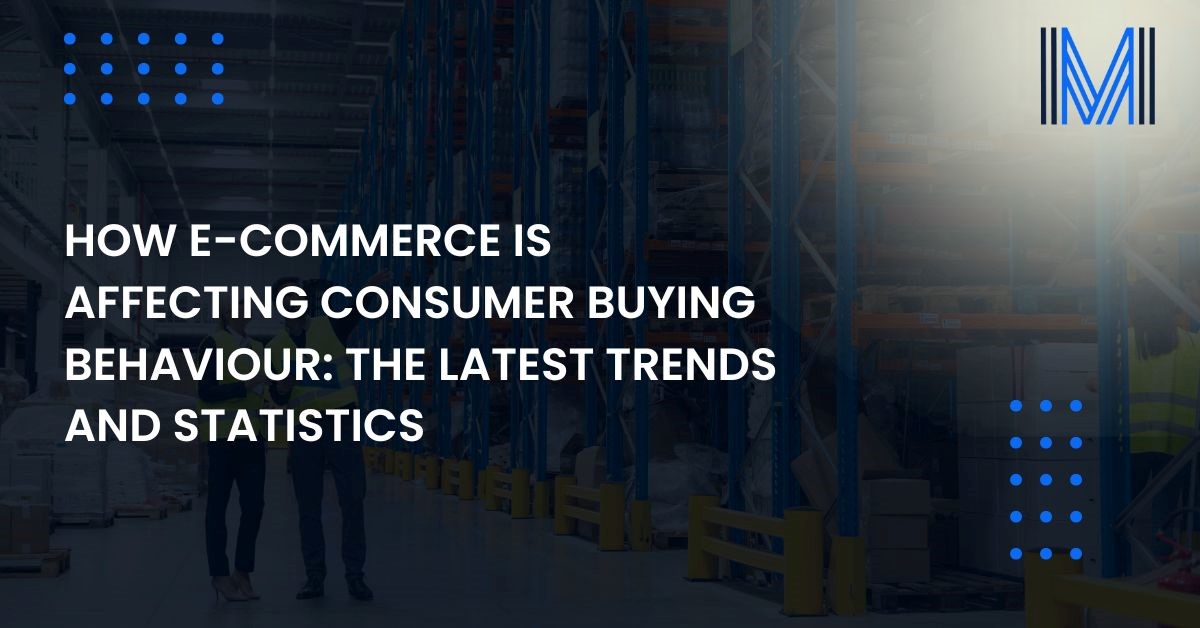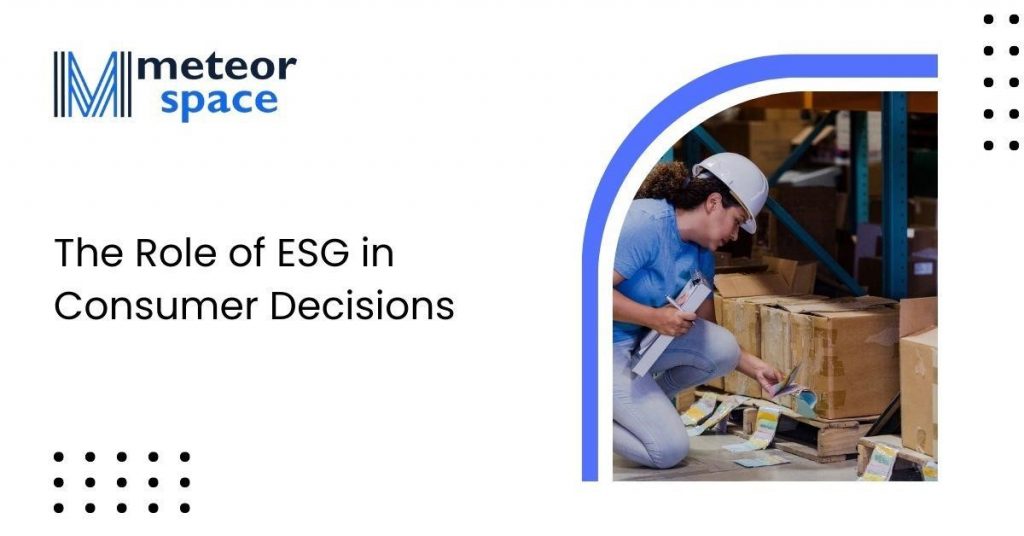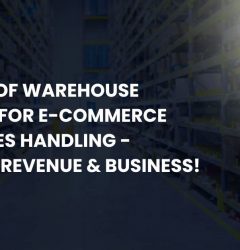28 Jan

Consumer shopping behavior has undergone a significant transformation in recent years, with e-commerce leading the charge. The COVID-19 pandemic acted as a catalyst, accelerating the shift towards online shopping as lockdowns and restrictions limited access to physical stores. This surge in e-commerce not only changed where consumers shop but also how they shop, setting new standards for convenience and efficiency that continue to shape the future of retail.
Impact of COVID-19 on Consumer Behavior
Accelerated Adoption of E-Commerce
The COVID-19 pandemic fundamentally altered consumer behavior, pushing a large portion of the population towards online shopping. According to Nielsen (2024), 75% of people bought household items online for the first time because of the pandemic. This significant shift was driven by the necessity to avoid physical stores during lockdowns and the growing confidence in the reliability and convenience of e-commerce platforms.
Increased Spending and Bulk Purchases
The uncertainty brought about by the pandemic led to changes in spending habits. LendingTree (2024) found that 1 in 4 people were spending more money on shopping than they could afford. Fears of potential stockouts prompted consumers to purchase items in bulk and hoard products, highlighting the need for businesses to manage inventory effectively and communicate transparently with their customers.
Demand for Quick Delivery
A study by Klaviyo (2024) revealed that 70% of people living with children under 18 prioritize quick delivery, compared to 50% of those without children at home. Families, especially with children, require fast delivery to address urgent needs, emphasizing the importance of efficient logistics and reliable shipping options for e-commerce businesses.
Sustained Increase in Online Purchasing
A report by Stackla (2024) indicated that 70% of consumers have significantly increased their e-buying behavior since the pandemic began. As restrictions eased, many consumers continued their preference for online shopping, recognizing the long-term benefits of convenience and time-saving associated with e-commerce.
Key E-Commerce Trends Post-Pandemic
Evolving Trends in E-Commerce Order Fulfillment
E-commerce order fulfillment has become the backbone of online retail, with businesses experiencing a surge in online sales. Consumers now expect a seamless experience, from browsing to delivery, making it crucial for businesses to stay updated with the latest trends to remain competitive.
Omnichannel Order Fulfillment
The rise of omnichannel fulfillment allows businesses to integrate their online and offline operations seamlessly. This approach ensures a cohesive shopping experience across all channels, whether customers are shopping via a mobile app, website, or physical store.
Investment in Fulfillment Centers
With the increase in online orders, companies are investing heavily in fulfillment centers to manage inventory and expedite shipping. The implementation of just-in-time inventory management and advanced stock control systems has optimized supply chains, reducing storage costs and minimizing stockouts.
3pl Ecommerce Fulfillment Services
As e-commerce continues to expand, the demand for specialized 3pl ecommerce fulfillment services has surged. Third-party logistics providers (3PLs) offer scalable solutions that cater to varying order volumes, ensuring that businesses can efficiently handle peak periods without compromising on service quality. Partnering with a reliable 3PL can streamline operations, reduce overhead costs, and enhance overall customer satisfaction.
Mobile Commerce Dominance
Recent data from Ecommerce Tips (2025) shows that 42% of all e-commerce dollars spent by consumers in the U.S. are now via mobile phones, up from 31% in 2023. This highlights the growing importance of mobile optimization, as consumers increasingly use their smartphones for shopping. Businesses must prioritize creating user-friendly mobile interfaces to enhance the shopping experience and drive sales.
Emphasis on Convenience
Convenience remains a top priority for consumers, with 78% of online shoppers valuing ease of use above all else (Ecommerce Tips, 2025). This trend underscores the need for streamlined website layouts, easily accessible products, and minimal clutter to facilitate a smooth shopping journey. Additionally, efficient fulfillment and fast delivery services are critical in meeting consumer expectations.
Community and User-Generated Content
A significant 65% of e-commerce buyers are willing to join a brand’s community and contribute content if invited (Ecommerce Tips, 2025). This shift towards user-generated content (UGC) and community engagement offers businesses an opportunity to build stronger relationships with their customers. By fostering a sense of community, brands can enhance loyalty, drive engagement, and accelerate growth.
Consumer Expectations from E-Commerce Stores
Fast and Reliable Delivery
95% of online buyers expect fast delivery when placing an order (Ecommerce Tips, 2025). Speedy delivery is crucial for maintaining customer satisfaction and loyalty. Implementing efficient shipping solutions and competitive pricing can significantly enhance the overall shopping experience, encouraging repeat business.
Seamless Cross-Device Experience
83% of e-commerce consumers desire a seamless experience across various devices when making a purchase (Linnworks, 2024). Online businesses must ensure that their platforms allow consumers to start their shopping journey on one device and complete it on another without issues. Advanced technology and simplified checkout processes are essential for creating a cross-device shopping experience that meets consumer expectations and retains customers.
Convenient Payment Options
91% of e-commerce consumers prioritize convenient payment options (Shopify, 2025). Offering multiple, easy-to-use payment methods such as digital wallets, credit cards, and buy-now-pay-later options can significantly boost conversion rates and improve overall customer satisfaction. Enhancing the payment process ensures a seamless and effortless experience for customers, making it more likely they will complete their purchases.
Personalized Shopping Experience
75% of online consumers prefer brands that offer personalized experiences (Shopify, 2025). Personalization can range from tailored email communications to customized product recommendations and packaging. By making customers feel special and valued, businesses can significantly increase their loyalty and engagement with the brand.
Omnichannel Shopping Experience
A substantial 72% of consumers expect a consistent and integrated shopping experience across multiple channels (Shopify, 2025). Implementing an omnichannel strategy allows consumers to interact with your brand seamlessly, whether through social media, mobile apps, or traditional websites. This integration enhances the shopping experience and drives sales by providing flexibility and convenience to the consumer.
The Role of ESG in Consumer Decisions

Environmental and Sustainability Practices
A recent global consumer behavior survey by PwC (2024) highlighted that 48% of consumers are influenced by a business’s environmental practices. Actions like reducing carbon emissions, recycling, and offering sustainable products have a profound impact on purchasing decisions. Many consumers are willing to pay an average of 11% more for sustainably produced goods, emphasizing the importance of integrating sustainability into business operations.
Social Practices
43% of global consumers consider a company’s social practices when making purchasing decisions (PwC, 2024). Supporting inclusivity, diversity, and human rights can significantly influence consumer behavior. Brands that align with their customers’ values and contribute positively to society are more likely to build trust and loyalty.
Governance Practices
Ethical operations and transparency affect 45% of consumer behavior (PwC, 2024). Trust and accountability in business practices are paramount, with consumers expecting companies to be honest and responsible. Transparent governance practices can enhance a brand’s reputation and foster long-term customer relationships.
Global Consumer Behavior Insights
Understanding global consumer buying behavior trends is essential for any online business aiming to expand internationally. Here are the latest statistics from PwC’s 2025 survey:
- Shopping at Multiple Retailers: 43% of consumers in the U.S. and Ireland shop at multiple retailers to meet all their needs, compared to 41% in China and 34% in Mexico. This trend highlights the increasing demand for variety and availability across different markets.
- Using Comparison Websites: 33% of consumers in the U.S. and Ireland use comparison websites to check product availability, while this figure is higher in China (44%) and Mexico (47%). Consumers globally are actively seeking the best deals and options available online, underscoring the importance of competitive pricing and value propositions.
- Switching Retailers for Availability: 28% of U.S. consumers would change their usual retailer to get the product they want, compared to 27% in Ireland, 31% in China, and 36% in Mexico. Product availability continues to be a significant factor influencing brand loyalty, emphasizing the need for robust inventory management and diverse product offerings.
These insights demonstrate the importance of aligning your business practices with consumer expectations and being responsive to their evolving needs to enhance their shopping experience and build lasting trust.
Actionable Insights for E-Commerce Businesses
Optimize Mobile Shopping Experience
With 42% of e-commerce transactions occurring on mobile devices, ensuring a seamless mobile shopping experience is crucial. Invest in responsive design, fast loading times, and intuitive navigation to cater to the growing number of mobile shoppers.
Enhance Order Fulfillment Efficiency
Efficient order processing and fulfillment are vital for meeting consumer expectations. Implementing advanced inventory management systems and partnering with reliable fulfillment centers can ensure timely deliveries and reduce the risk of stockouts. Utilizing pick and pack fulfillment services can streamline the order handling process, ensuring accuracy and speed from storage to delivery.
Foster Community Engagement
Encouraging user-generated content and building a strong online community can drive engagement and loyalty. Create platforms where customers can share their experiences, provide feedback, and interact with each other to foster a sense of belonging and brand affinity.
Implement Sustainable Practices
Integrate sustainability into your business operations by reducing carbon emissions, utilizing eco-friendly packaging, and offering sustainable products. Transparent communication about your sustainability efforts can enhance your brand’s reputation and attract environmentally conscious consumers.
Personalize Customer Interactions
Leverage data analytics to personalize customer interactions and offer tailored recommendations. Personalized experiences can significantly enhance customer satisfaction and drive repeat purchases by making customers feel valued and understood.
Expand Payment Options
Offer a variety of payment methods to cater to diverse consumer preferences. Incorporate digital wallets, credit cards, and buy-now-pay-later options to provide a seamless and flexible payment experience, thereby increasing conversion rates.
Embrace Omnichannel Strategies
Develop an omnichannel strategy that integrates your online and offline operations. This approach ensures a consistent and cohesive shopping experience across all platforms, enhancing customer satisfaction and driving sales.
Looking for Help with Your E-Commerce Business?

Staying updated with the latest consumer behavior trends is crucial for understanding what your customers are looking for. Despite the changing times, one constant remains: your online buyers demand fast order deliveries and a seamless shopping experience.
Meteor Space, a leading fulfillment center and third-party logistics provider (3pl ecommerce fulfillment services), can help you reach your customers on time with accurate order fulfillment. From storing inventory, picking and packing orders, to fast shipping, we handle all your order fulfillment needs, ensuring you meet the expectations of e-commerce consumers.
By partnering with Meteor Space, you can focus on building your brand and creating a top-notch shopping experience based on the latest consumer buying behavior trends. This includes offering convenient payment options, implementing an omnichannel fulfillment experience, and ensuring personalized interactions. Let us handle the logistics so you can dedicate your efforts to crafting effective marketing strategies that drive sales and enhance customer satisfaction.
Don’t let order delivery and warehousing concerns hold you back. Start today and see how Meteor Space can elevate your e-commerce business to new heights with the best fulfillment services available!
Get Started Today!
Conclusion
In summary, the e-commerce landscape has been dramatically reshaped by the COVID-19 pandemic, leading to lasting changes in consumer behavior. Key trends such as the rise of mobile commerce, the emphasis on convenience, the demand for personalized experiences, and the importance of ESG practices are shaping the future of online retail. Understanding and adapting to these trends is crucial for businesses aiming to thrive in this competitive environment.
Author:
Mishal Khan
Mishal is a dedicated copywriter and content writer with experience across various niches. Currently, Mishal is focused on writing guides and other compelling blogs on warehouse management, logistics and more, crafting engaging and informative content to help businesses understand and master their supply chain. Passionate about delivering quality content, Mishal aims to make complex topics accessible and enjoyable for all readers.
UPDATED ON: 28th Jan 2025



